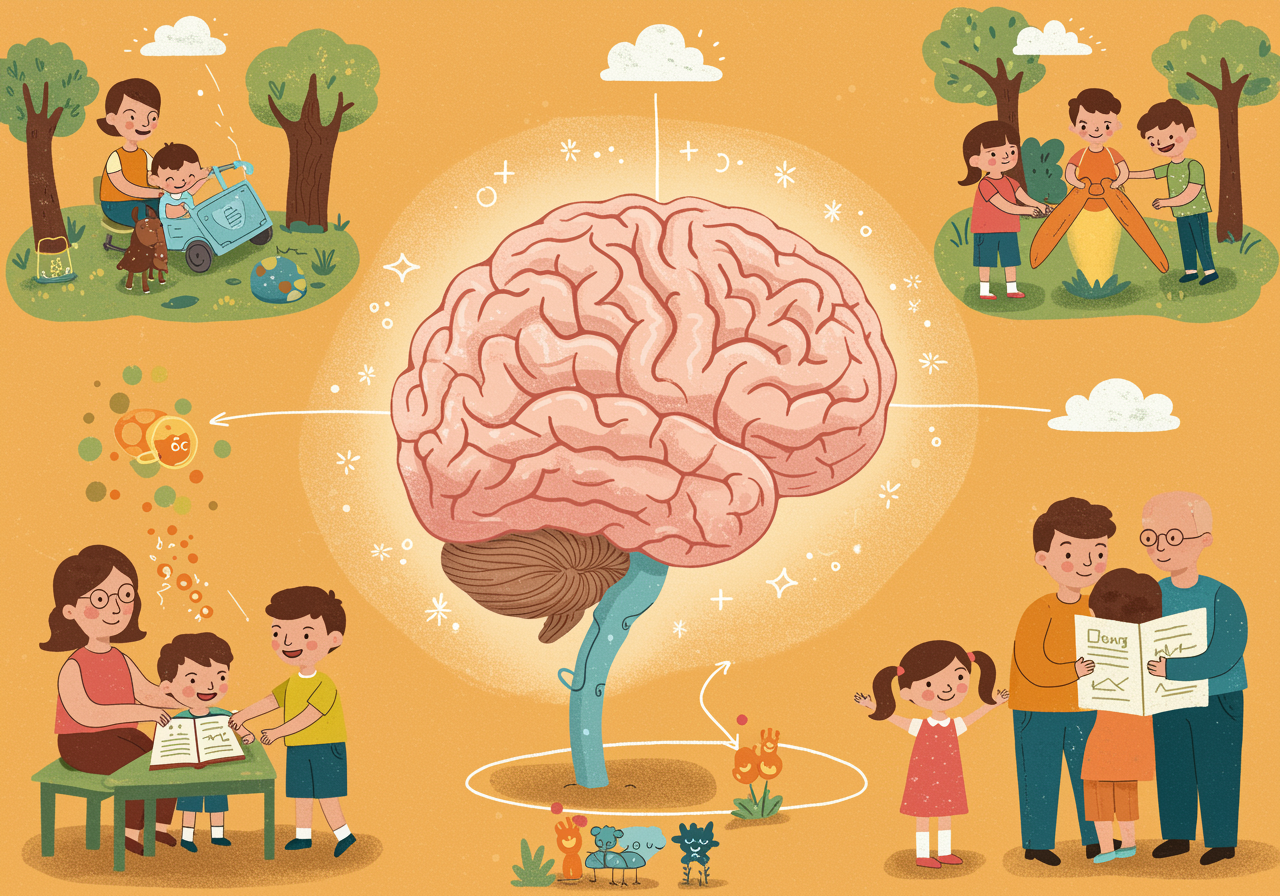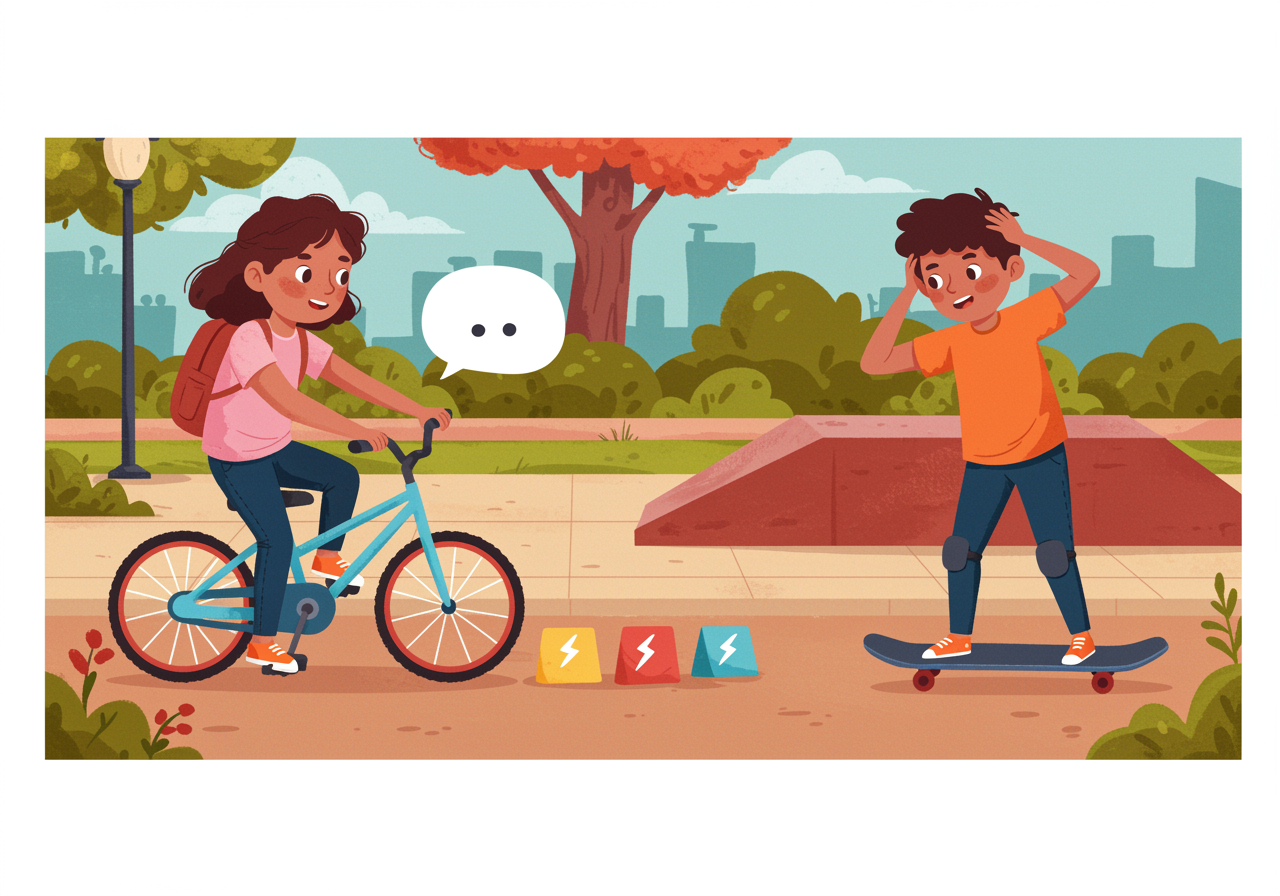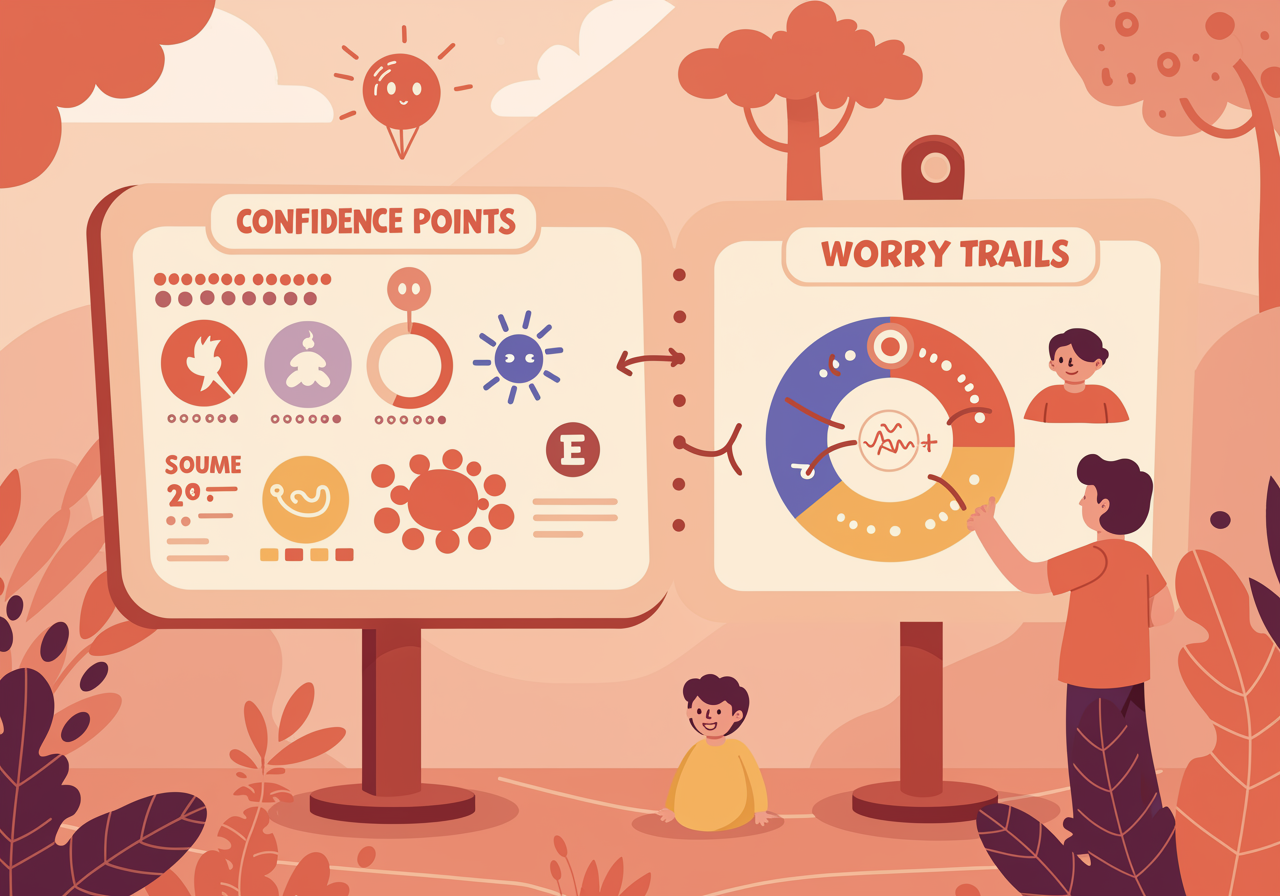How Your Childhood Builds Your Happy Brain

The amazing science of how early experiences train your brain for joy
Discover the fascinating way your brain learns happiness patterns during childhood and how understanding this superpower can help families build stronger, more joyful connections.
Overview
Think of your brain as the most amazing learning machine ever created – and during childhood, it's working overtime to figure out how the world works! Every experience you have, from family hugs to overcoming challenges, is like training data that teaches your brain what to expect and how to respond. This incredible process shapes how you'll handle stress, form relationships, and find happiness as an adult. Understanding this brain-building superpower helps families create more positive experiences and shows kids that they have real influence over their own emotional future.

Understand in 30 Seconds
Get up to speed quickly
- Your Brain is Always Learning: During childhood, your brain forms millions of connections based on your experiences. Happy, safe moments teach your brain that the world can be a good place.
- Patterns Stick Around: The emotional patterns your brain learns in childhood often continue into adulthood. This is why some adults are naturally optimistic while others worry more.
- Bad Experiences Don't Doom You: Even if someone has tough childhood moments, the brain can still learn new, healthier patterns throughout life through positive relationships and experiences.
- You Have More Control Than You Think: Understanding how your brain works means you can actively choose experiences and relationships that help train your brain for happiness and resilience.
Real Life Scenario
Situations you can relate to
Imagine your brain is like a hiking trail through a forest. Every time you walk the same path, it gets easier to follow and more worn in. Now picture two kids: Maya gets lots of encouragement when she tries new things, while Sam often hears criticism. Maya's brain builds strong 'confidence trails' that make it easier for her to feel good about challenges as an adult. Sam's brain builds 'worry trails' that might make him more anxious later. But here's the cool part – Sam can still build new, positive trails throughout his life! Have you ever noticed how some adults seem naturally confident while others are more cautious? This difference often starts with the emotional trails their brains built during childhood.

Role Play
Spark a conversation with “what if” scenarios
What if you could see the invisible 'confidence points' someone earns when they feel supported during a challenge?
- Role play: Act out a scene where one person is learning something difficult (like skateboarding or cooking) while the other offers different types of support. Switch between critical comments and encouraging ones to see how it feels different.
What if brains had a 'happiness training mode' that got stronger with practice?
- Role play: Create a fun game where you 'level up' happiness skills by practicing gratitude, helping others, or celebrating small wins. Keep score and see how it affects your mood.
What if you could be a 'brain architect' designing the perfect emotional foundation for a younger kid?
- Role play: Design an imaginary day for a 6-year-old that would build strong, positive brain patterns. Discuss what experiences would help them feel safe, loved, and confident.
FAQs
Frequently asked questions people want to know
Does this mean people with difficult childhoods can't be happy?
Not at all! The brain is incredibly adaptable throughout life. Positive relationships, therapy, and new experiences can help anyone build healthier emotional patterns, no matter their starting point.
Can parents mess up their kids just by making mistakes?
No way! Kids are resilient, and what matters most is the overall pattern of love and support, not perfect parenting. Making mistakes and repairing them actually teaches kids that relationships can heal.
Why do some people seem naturally happier than others?
It's usually a combination of brain patterns learned in childhood, genetics, and current life experiences. The good news is that happiness skills can be learned and strengthened at any age.
Examples in the Wild
See how this works day to day
- Research shows that children who experience 'serve and return' interactions (like peek-a-boo or back-and-forth conversations) develop stronger brain connections for emotional regulation. (Harvard Center on the Developing Child)
- Studies of adults who experienced childhood adversity but had at least one supportive relationship show much better mental health outcomes than those without that support. (American Psychological Association)
- Brain imaging studies reveal that positive childhood experiences actually change the structure of brain regions involved in stress response and emotional processing. (National Institute of Mental Health)
- Research on mindfulness programs in schools shows that children can learn emotional regulation skills that improve their wellbeing both immediately and long-term. (Journal of Applied Developmental Psychology)
In Summary
What you should know before you start
- Your brain builds emotional patterns during childhood based on your experiences, kind of like creating a roadmap for how to feel and react
- Positive, supportive experiences help build brain patterns that make it easier to be happy and resilient as an adult
- Even difficult childhood experiences don't permanently limit someone's ability to be happy – the brain can always learn new patterns
- Understanding this process gives both kids and adults more power to actively choose experiences that support emotional wellbeing
Pro-tip for Parents
You got this!
If your child asks whether their current experiences will affect their future happiness, reassure them that their brain is constantly growing and adapting. Focus on the positive changes happening right now rather than dwelling on past difficulties. Remember that your loving response to their question is itself a positive brain-building experience! The goal isn't to be a perfect parent, but to create an overall environment of safety, love, and growth.

Keep an Eye Out For
Find these examples in everyday life
- News stories about resilience research or childhood development studies that you can discuss together
- Moments when your child shows emotional growth or handles challenges well – celebrate these as 'brain training victories'
- Opportunities to volunteer with younger children, which helps teens see how their positive interactions can impact others' development
Explore Beyond
Look up these related research topics
- How different cultures around the world approach childhood and emotional development
- The science of neuroplasticity and how brains continue changing throughout life
- How positive psychology research is being used in schools and communities to build emotional resilience